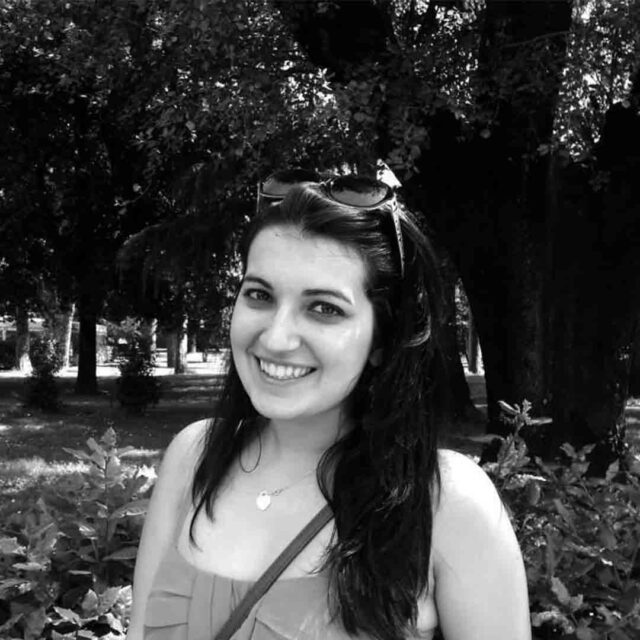Dr Clarissa Frigerio

The GTA scholarship enabled me to continue doing what I love most: teaching. I was able to put my research into practice, while supporting students become teachers. This is a great feeling and a rewarding experience.
Supervisors: Dr Francis Farrell, Dr Christine Lewis
Please tell us a little bit about yourself (e.g. current job role/ focus of your PhD research / previous experience relating to your course)
I completed my PhD in Education at Edge Hill University in 2022. My research used a life history methodology to interrogate the gender imbalance of contemporary Early years workforce. Currently, I work as a Programme Delivery Executive at The Scout Association to design their new early years provision. The Scout’s youngest section, Squirrels, supports 4 to 6 year olds to develop new skills and learn through first-hand experiences at a time where it matters and where it is most needed.
Why were you interested in a PhD?
Growing up, I had the privilege to receive an international education. Originally from Italy, I studied at an American university and worked in the USA as a pre-school and reception teacher in bilingual schools. I familiarised with pioneering early years teaching practices (I worked in a Reggio Emilia school and in a Montessori inspired one) and I was able to forge a strong teaching identity. As an educator, I recognise the importance of early childhood education as integral to children’s progress and early socialisation experiences. My PhD was influenced by these international experiences, and the desire to critically analyse current early years policies and practices to ensure the environment invests in early childhood professionals’ holistic development, so that the sector can better train and recruit the best staff.
Why did you choose to study at Edge Hill Faculty of Education?
I applied to Edge Hill Faculty of Education as it is a leading institution for early years education in the North West. I also wanted to continue teaching and supporting students during their academic journey. The PhD/GTA position was arguably the best offer I received.
What are the top 3 skills your PhD/ GTA position supported you to develop? How are you using those skills now?
- Critical thinking – working on the PhD I was able to review large sets of data and interrogate literature and policy and I use these skills on a daily basis.To design Squirrels we use an intersectional approach that looks at how the programme can develop and support children from different ethnic backgrounds, geographical areas, gender, and other.
- Mentorship and support – as a GTA, I supported and advised students on their academic journey. I developed a student-centred approach for students to grow and reflect on their abilities. Within my team I ensure I listen to people’s needs and co-produce a growth plan.
- Inclusive practices – my PhD interrogates how social structures perpetuate masculinist practices in the work environment. This awareness has been central in my current work as I closely work with the Equality, Diversity and Inclusion (EDI) department to ensure inclusivity and anti-racist practices are in place.
What insight did you gain from your studies and how was this supported by your supervisors and the faculty’s research development programme?
In my experience, both supervisors and colleagues are genuinely interested in your research and they want you to excel. Everyone has encouraged me to share my findings and thoughts with the wider academic world. I presented at many conferences, and wrote some critical blog posts. EHU also offers plenty of opportunities to join Research Networks and Writing Retreats. These were invaluable opportunities because they allowed me to share my thoughts and receive support from colleagues in a non-judgemental way.
What did you most enjoy about your GTA studentship, and what were the challenges (if any), and how have you overcome these?
The GTA scholarship enabled me to continue doing what I love most: teaching. I was able to put my research into practice, while supporting students become teachers. This is a great feeling and a rewarding experience.
How did your PhD support your career progression?
The PhD enabled me to develop extensive critical knowledge in the early years sector. My data analysis skills are invaluable to my current position, and I can now think more critically about how policy and practices shape children in their early years development. Additionally, teaching students allowed me to develop excellent mentorship and person-centred practices that are invaluable for career progression.
What advice would you give to someone considering studying a PhD at EHU?
Edge Hill is a fantastic place for a PhD, especially if you are looking for a programme that enables you to continue teaching and develop both research and teaching experience.